Yet, in other ways, food processing plant design consultants have some very unique design considerations. Here are some of the top elements to consider when designing food processing plants:
Accuracy
If you think back to your high school science class, you might remember a discussion about the differences between accuracy and precision. Accuracy is a measure of how closely a measurement matches the true value. For example, if your recipe calls for 20 kilograms of flour, a process that adds 20.0 kilograms ± 0.1 kilograms is more accurate than a process that adds 20.0 kilograms ± 0.7 kilograms.
Of course, inaccuracy can have grave effects on the quality of your product and, consequently, your bottom line. If an inaccuracy causes an inconsistent product, you might be faced with a difficult choice: either pull those products from your line or release substandard products. Ensuring accuracy, on the other hand, can reduce waste and cement your business’s reputation for maintaining quality standards.
Precision
Precision refers to the repeatability of a process. A precise process can produce consistent results, time after time. Thus, a process that always produces a temperature of 37 degrees is precise.
However, where precision differs from accuracy is that a precise process isn’t always desirable. For example, that process which always produces a temperature of 37 degrees is inaccurate if the desired temperature is 42 degrees. This means that the results, while consistent, may not be of the desired quality. Thus, to produce a consistently high-quality product, the process must be both accurate and precise.
Safety
While working as a consultant for food processing industry members, one of an engineering group’s highest priorities is safety. The consequences of deficient food safety policies can be dire, including illness or even loss of life due to unsafe food or machinery.
Food safety covers many aspects of a food processing plant, including:
- Prevention of contamination due to microbes which cause foodborne illnesses
- Prevention of contamination by chemicals or other toxic contaminants
- Selection of packaging and machinery to safely handle the products
- Operating the machinery to safely process the food products, including sufficient cooking time and temperature for cooked foods
- Providing a safe environment for plant workers
For example, the use of polished concrete flooring has become a popular alternative to marble, tile, and linoleum for commercial facilities since it is easily cleaned.
Reliability
A reliable process is a process that is robust and remains operational between scheduled maintenance outages. An unreliable process has multiple failure points or points where quality can be compromised. In either case, the process must be shut down to remedy the problem. This costs time and money.
A robust and reliable process, on the other hand, is designed to either minimize these points of failure. For example, sensors and inspection points built into the process can allow real-time quality control and adjustment if the process does not fall within the acceptable tolerances.
Capacity
Capacity does not necessarily mean producing as much as possible. Capacity is the ability to make exactly the amount needed, taking into account breakage and waste, in exactly the amount of time allocated. Thus, for a company that ships 4,000 bags of potato chips every day, a process that can only produce 2,000 bags of chips per day lacks sufficient capacity. On the other hand, a process that produces 7,000 bags of chips per day is wasteful, both in producing unsold inventory and in operating a process with excess capacity.
Ideally, a consultant for food processing industry plants can design a process with a scalable capacity so that the process can accommodate varying capacity levels without a complete re-design.
Design engineering firms that act as a consultant for the food processing industry members work with you to design processes that are accurate, precise, reliable, and safe at your desired capacity. When you want to transform your dream into reality, rely on The Project Group Consulting for all considerations.


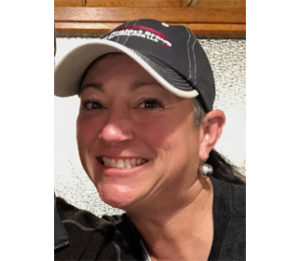 Pamela began her professional career in the broadcast industry while attending Tarleton State University. After graduating with a B.S. in Speech Communication in 1997, she worked at several radio stations in management roles focusing on continuity, music and production as well as serving as an on-air talent continuously for more than ten years. In 2010, Pamela accepted a position as the Assistant Marketing and Development Director for the Eisemann Center in Richardson, TX. Helping to promote, market and develop the City of Richardson’s performing arts center, she succeeded in implementing and managing all social media marketing as well as creating and directing a first-ever student art exhibit, further strengthening her marketing and organizational talents.
Pamela began her professional career in the broadcast industry while attending Tarleton State University. After graduating with a B.S. in Speech Communication in 1997, she worked at several radio stations in management roles focusing on continuity, music and production as well as serving as an on-air talent continuously for more than ten years. In 2010, Pamela accepted a position as the Assistant Marketing and Development Director for the Eisemann Center in Richardson, TX. Helping to promote, market and develop the City of Richardson’s performing arts center, she succeeded in implementing and managing all social media marketing as well as creating and directing a first-ever student art exhibit, further strengthening her marketing and organizational talents. Jason Krueger is the Director of Ranch and Real Estate Development for The Project Group Consulting, LLC. Jason has been managing and developing ranches for greater than 14 years, and has extensive sales management experience in the construction industry dating back to the late 90s. He is also a Wildlife Biologist/Ecologist with a B.S. in Wildlife Ecology from Texas A&M University in College Station.
Jason Krueger is the Director of Ranch and Real Estate Development for The Project Group Consulting, LLC. Jason has been managing and developing ranches for greater than 14 years, and has extensive sales management experience in the construction industry dating back to the late 90s. He is also a Wildlife Biologist/Ecologist with a B.S. in Wildlife Ecology from Texas A&M University in College Station.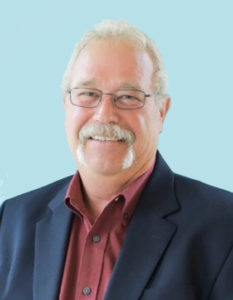 Bryant began his career at Crepaco warehouse in parts distribution and pump assembly. Then he progressed to field installation for process and ammonia systems where he oversaw welding and fitting both sanitary tubing and ammonia piping systems.He then moved to San Antonio, spent a year as a contract fabricator with H-E-B Foods working for Sanitary Welding Services. At the end of his contract he returned to the DFW area with Alloy Equipment doing installation, crew management, and scheduling. There he remained through the buyout by Statco Fabrication and Engineering, which resulted in his 25 combined years with them moving into engineering and sales departments.
Bryant began his career at Crepaco warehouse in parts distribution and pump assembly. Then he progressed to field installation for process and ammonia systems where he oversaw welding and fitting both sanitary tubing and ammonia piping systems.He then moved to San Antonio, spent a year as a contract fabricator with H-E-B Foods working for Sanitary Welding Services. At the end of his contract he returned to the DFW area with Alloy Equipment doing installation, crew management, and scheduling. There he remained through the buyout by Statco Fabrication and Engineering, which resulted in his 25 combined years with them moving into engineering and sales departments.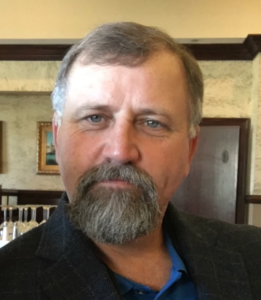 With more than 25 years in the food and beverage industry and extensive experience as a project manager, Tony has planned and led multi-million dollar projects relating to system upgrades, equipment installation, water quality, validations and process improvements. Some of his areas of expertise include project planning, quality assurance, process analysis, manufacturing systems, process design and problem resolution.
With more than 25 years in the food and beverage industry and extensive experience as a project manager, Tony has planned and led multi-million dollar projects relating to system upgrades, equipment installation, water quality, validations and process improvements. Some of his areas of expertise include project planning, quality assurance, process analysis, manufacturing systems, process design and problem resolution.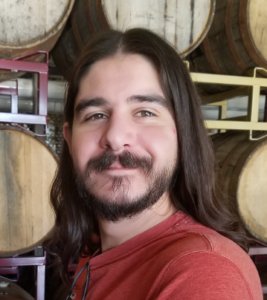 Tim is an electrical and control systems engineer with more than ten years of experience in a wide variety of industries. Project experience includes working with clients in the water/wastewater fields, pharmaceutical, cosmetics and food and beverage industries. Prior to his engineering work, Tim was a licensed water treatment plant operator in Texas. Tim’s strengths are process engineering, control system design, conveyor system design, and project management. He received his B. S. in Electrical Engineering from the University of Texas at Arlington. In his spare time, Tim enjoys working on cars, golfing, and billiards.
Tim is an electrical and control systems engineer with more than ten years of experience in a wide variety of industries. Project experience includes working with clients in the water/wastewater fields, pharmaceutical, cosmetics and food and beverage industries. Prior to his engineering work, Tim was a licensed water treatment plant operator in Texas. Tim’s strengths are process engineering, control system design, conveyor system design, and project management. He received his B. S. in Electrical Engineering from the University of Texas at Arlington. In his spare time, Tim enjoys working on cars, golfing, and billiards.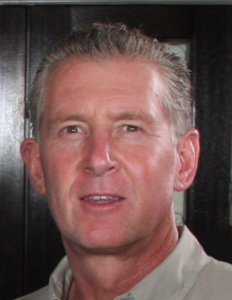 Michael has thirty-five years of diversified experience in project management and engineering, equipment and systems design, and manufacturing and production. Michael holds a Bachelor of Science degree in Mechanical Engineering from Texas A&M University.
Michael has thirty-five years of diversified experience in project management and engineering, equipment and systems design, and manufacturing and production. Michael holds a Bachelor of Science degree in Mechanical Engineering from Texas A&M University.